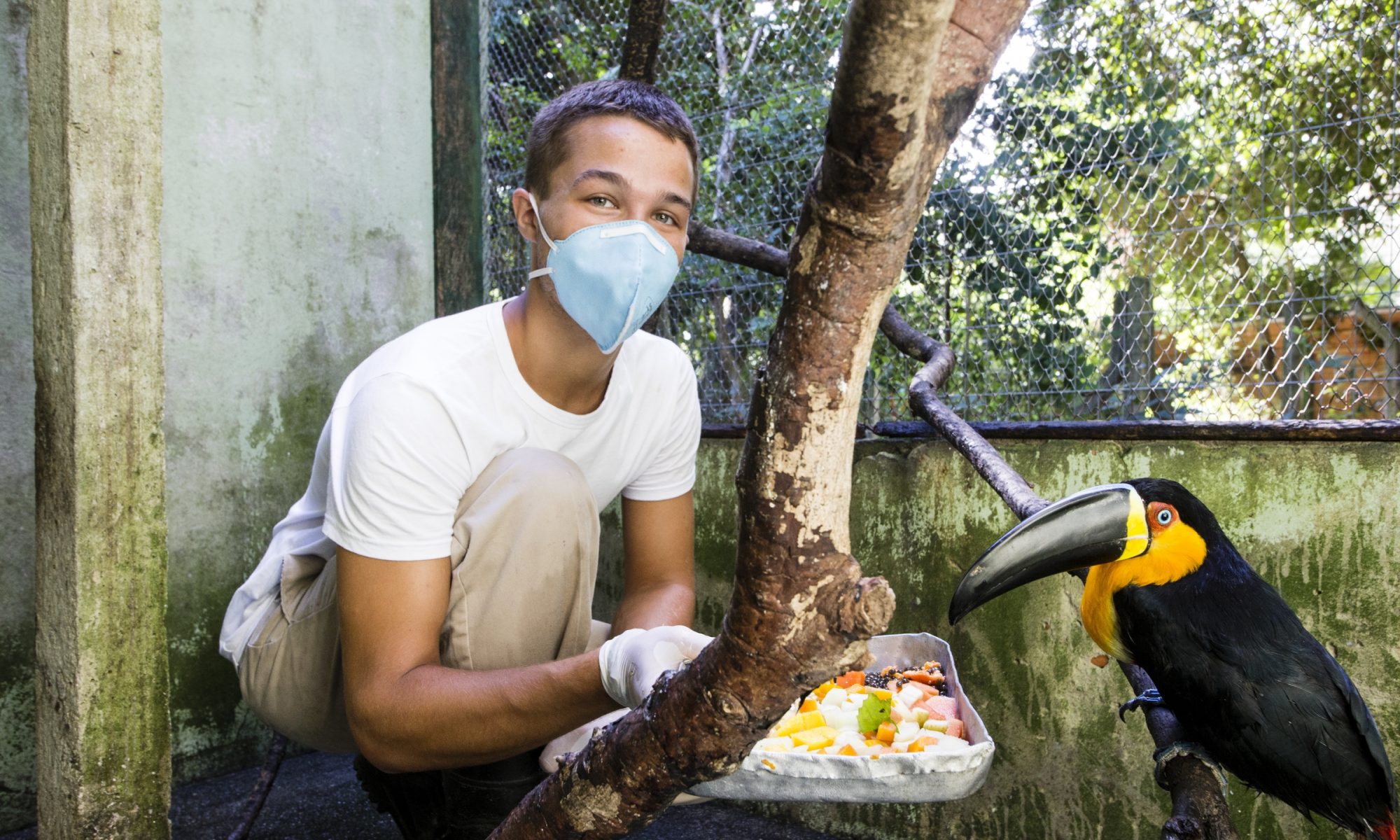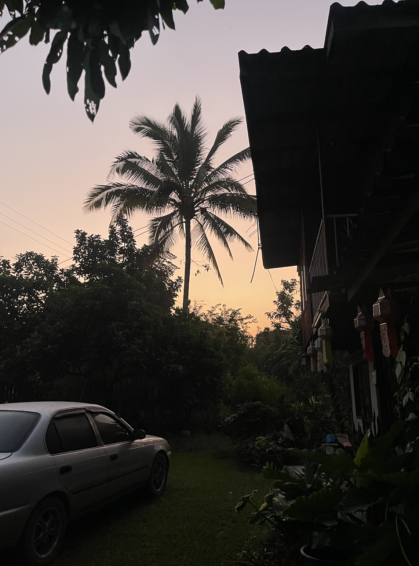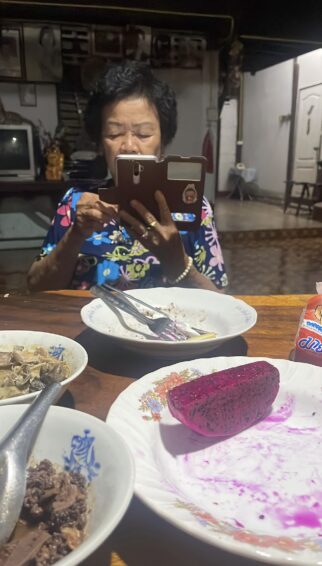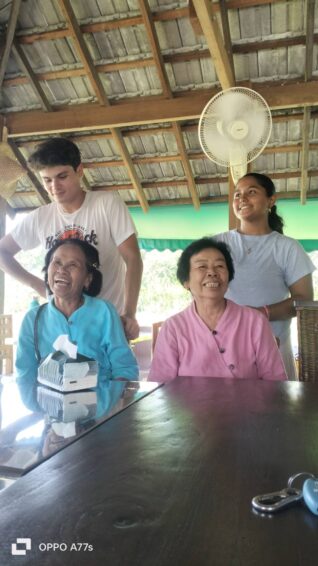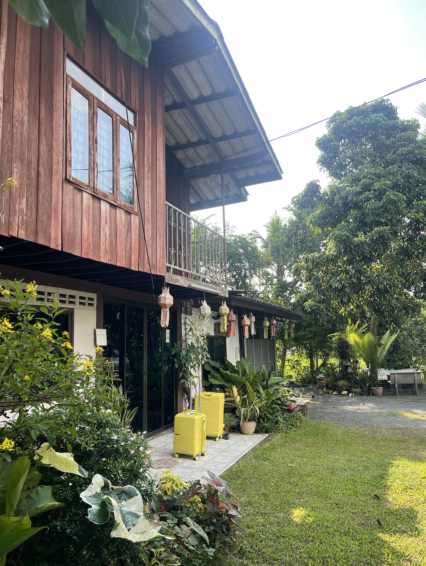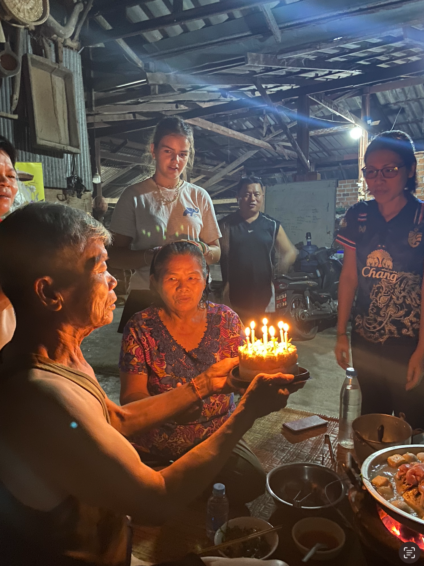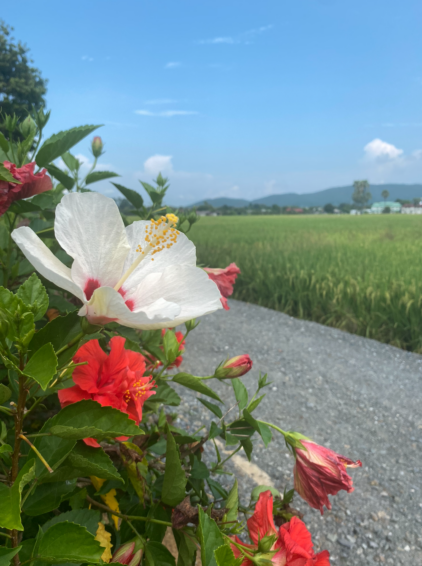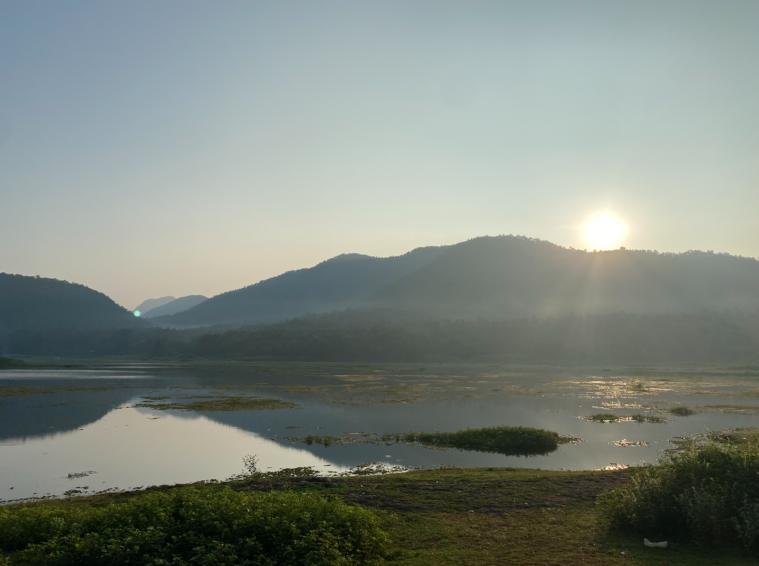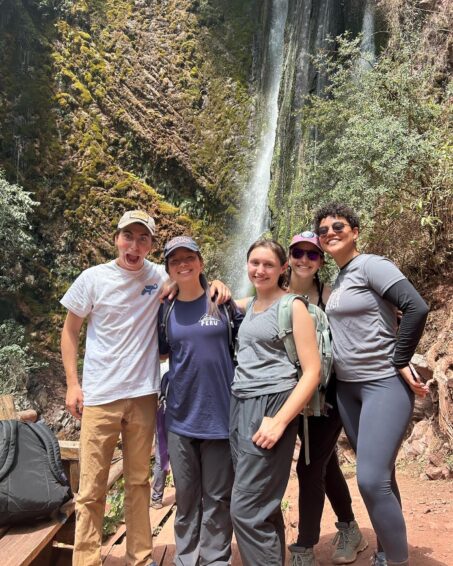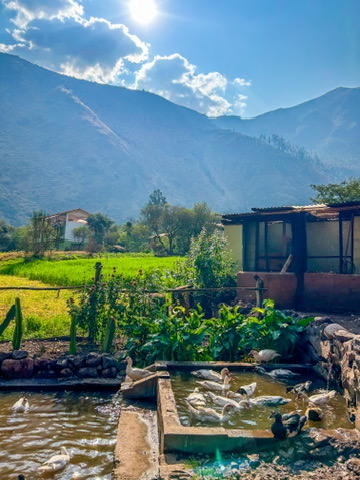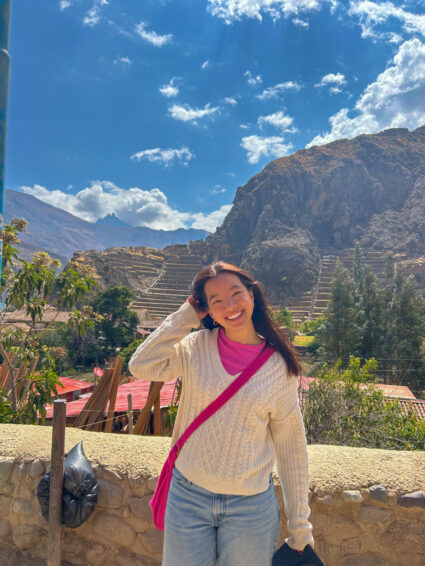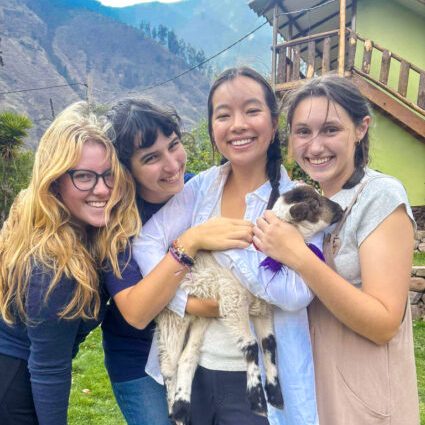by Vorleak, Alonso & Liam


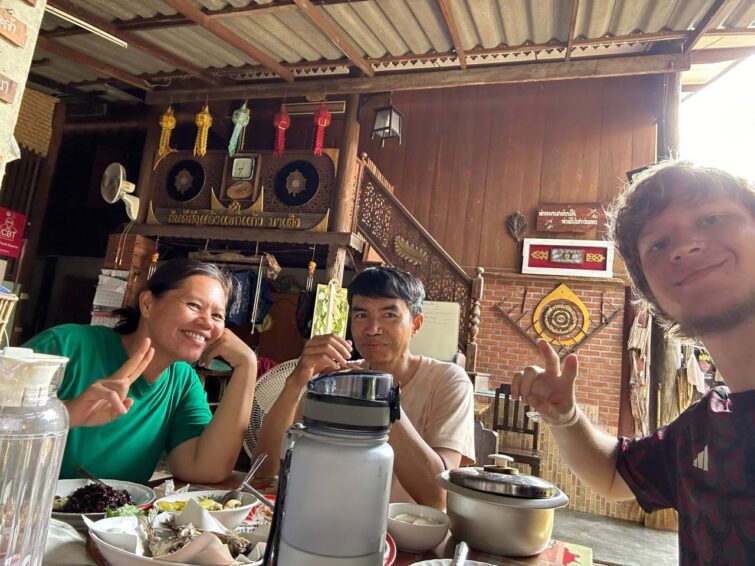

“Home away from home.” It’s a phrase that gets thrown around a lot when talking about homestays, right? But honestly, nothing could have prepared us for the whirlwind of emotions that came with actually living it.
“Home away from home.” The words that echoed in our heads as we rode off to the Huai Lan Community from our Doodle house in our usual silver vans, our hearts pounding like the Khon dance drum. We have still yet to know who our host mothers “Maes” were but there they were; beaming with their smiles all wide and welcoming, but their words, a melodious cascade of Thai, washed over us like a foreign tide. We managed to speak out “Sawadee kha and Sawadee krap” a basic phrase taught by our Kru Nim and Kru Angpao, but one that has helped us out in countless awkward situations.
Home. The world felt alien in this old wooden house supported on stilts, the air both outside and inside filled with the scent of lemongrass, basil and other unfamiliar spices. My room, a simple space with egg colored walls, a giant woven rose mat and mosquito net, was a far cry from my Rilakkuma pattern bed sheets and walls covered with bookshelves back home in Cambodia.
Continue reading “Homestay in Huai Lan: Home Away From Home (Part 2)”